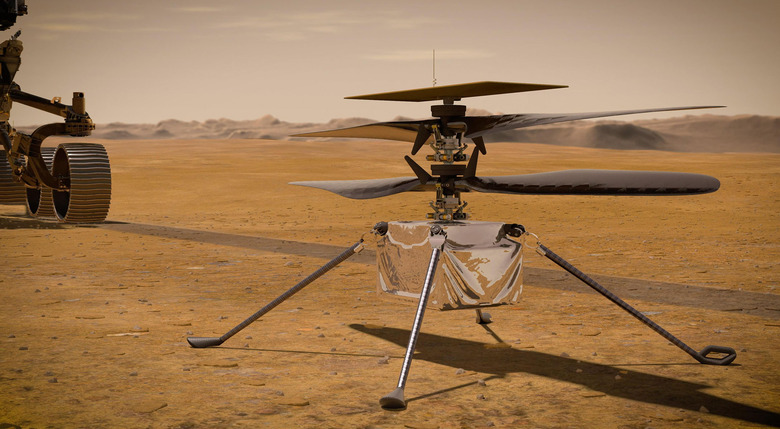NASA Forced To Delay First Mars Helicopter Flight
NASA's Perseverance mission to Mars has been pretty much perfect thus far. The rover and its tiny helicopter companion landed on the Red Planet with ease and after about a month of systems testing and other startup work, both the rover and the Ingenuity helicopter were given clean bills of health. This past weekend, the Mars helicopter was slated to have its first moment in the spotlight this past weekend, but unfortunately, that didn't come to pass.
In an announcement, NASA revealed that the date for the flight will now be no earlier than April 14th, which is a bit of a bummer for science fans, but there was apparently a very good reason for the delay. According to NASA, the helicopter returned some data that suggested things weren't 100% perfect, and a flight delay was immediately issued.
NASA explains:
Based on data from the Ingenuity Mars helicopter that arrived late Friday night, NASA has chosen to reschedule the Ingenuity Mars Helicopter's first experimental flight to no earlier than April 14.
During a high-speed spin test of the rotors on Friday, the command sequence controlling the test ended early due to a "watchdog" timer expiration. This occurred as it was trying to transition the flight computer from 'Pre-Flight' to 'Flight' mode. The helicopter is safe and healthy and communicated its full telemetry set to Earth.
NASA says that the "watchdog timer" is essentially an oversight system that monitors various aspects of the helicopter. In this case, an alert was issued after something about the helicopter's transition from "pre-flight" to "flight" mode and forced the helicopter's handlers back on Earth to call off the flight test until they can "diagnose and understand the issue."
The full-speed test will be rescheduled once the team figures out exactly what triggered the alert, and that's expected to happen no sooner than the 14th. It could also be delayed further if it turns out that the issue needs some additional investigation to ensure the safety and stability of the helicopter.
Ingenuity will (almost certainly) become the first manmade aircraft to take flight on another planet. It's wild to think that we've been able to send rovers and orbiters and seismic landers to Mars and the Moon, but we've never attempted to send an aircraft. If Ingenuity does indeed take to the Martian skies it will be a momentous occasion for NASA and, really, humanity as a whole.
The helicopter isn't equipped with any scientific equipment and doesn't have any mission objectives beyond just flying and returning data about its flights to Earth. The idea is that, if Ingenuity performs well, future NASA missions to Mars and elsewhere could include aerial drones in addition to (or instead of) robotic rovers, improving the speed at which scientists could explore.
